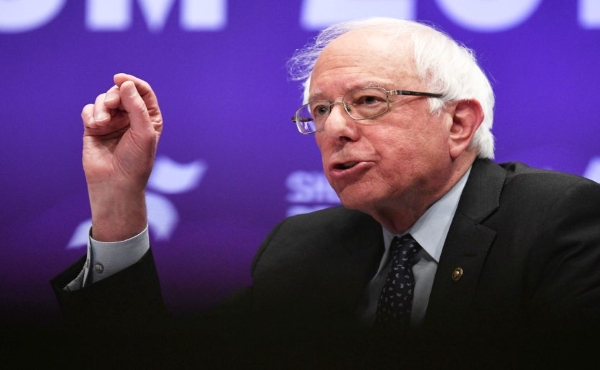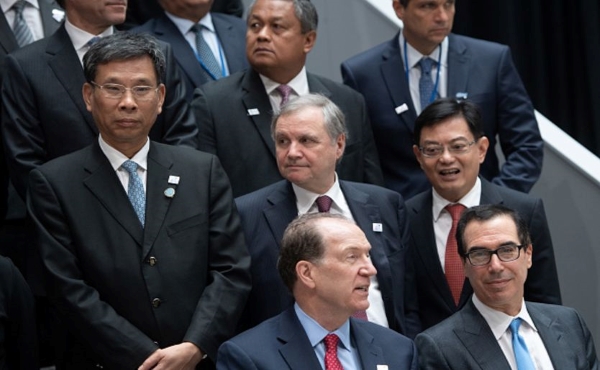White House looking to keep truck lanes open to limit economic damage if Trump closes U.S.-Mexico border, Kudlow says
KEY POINTS
The White House is looking for ways to limit the economic damage that will result if President Donald Trump makes good on his recent threats to close the U.S.-Mexico border, according to Larry Kudlow, the Director of the National Economic Council.
Kudlow said that the Trump administration was exploring whether it could permit trucks carrying freight to cross the border if it is sealed. He cautioned that the president has not made any final decisions.
The White House is looking for ways to limit the economic damage that will result if President Donald Trump makes good on his recent threats to close the U.S.-Mexico border, according to Larry Kudlow, the Director of the National Economic Council.
Kudlow said that the Trump administration was exploring whether it could permit trucks carrying freight to cross the border if it is sealed. He cautioned that the president has not made any final decisions.
“We are watching it and looking for ways to allow the freight passage, some people call it truck roads, and there are ways you can do that which would ameliorate the breakdown in supply chains,” Kudlow told CNBC’s Sara Eisen Tuesday.
Kudlow, who until joining the Trump administration was a CNBC contributor, said he supported Trump’s immigration policies “fully.”
“The question is: Can we deal with that, and not have economic damage? And I think the answer is: We can, and people are looking at different options.”
“Particularly if you can keep those freight lanes, truck lanes, open, that’s probably the nub of it,” Kudlow said.
Kudlow said that allowing workers to cross the border could be more difficult.
“I don’t want to comment on it because we are playing right now — what you want to do is stop the emergency and the breakdown, and you want to try to limit whatever harm that does,” he said. “It’s a very difficult task. I think it’s doable.”
Trump, who has declared the border situation a national emergency, threatened Friday to shut down “the Border, or large sections of the Border,” if Mexico does not “immediately stop ALL illegal immigration coming into the United States throug (sic) our Southern Border.”
The president’s threat raised some concerns in the business community.
“U.S. trade with Mexico exceeds $1.7 billion daily, and nearly half a million people legally cross the southern border every day as workers, students, shoppers, and tourists,” said Neil Bradley, chief policy officer at the U.S. Chamber of Commerce, in a statement.
“Even threatening to close the border to legitimate commerce and travel creates a degree of economic uncertainty that risks compromising the very gains in growth and productivity that policies of the Trump Administration have helped achieve,” Bradley said.
The potential closure also alarmed lawmakers in the president’s party, though some suggested that the president’s threat was a negotiating tactic.
“It’s part of the way he negotiates, but I’m not sure that’s a particularly good idea and I’m not sure it gets the desired result,” said Majority Whip Sen. John Thune, R-S.D., according to Politico.
The president’s threats come as he seeks congressional approval for a trade deal to replace the 1994 North American Free Trade Agreement. Securing that deal, which the president refers to as the United States-Mexico-Canada Agreement, and which his Democratic critics call NAFTA 2.0, could give the president an important policy win ahead of the 2020 presidential election.





